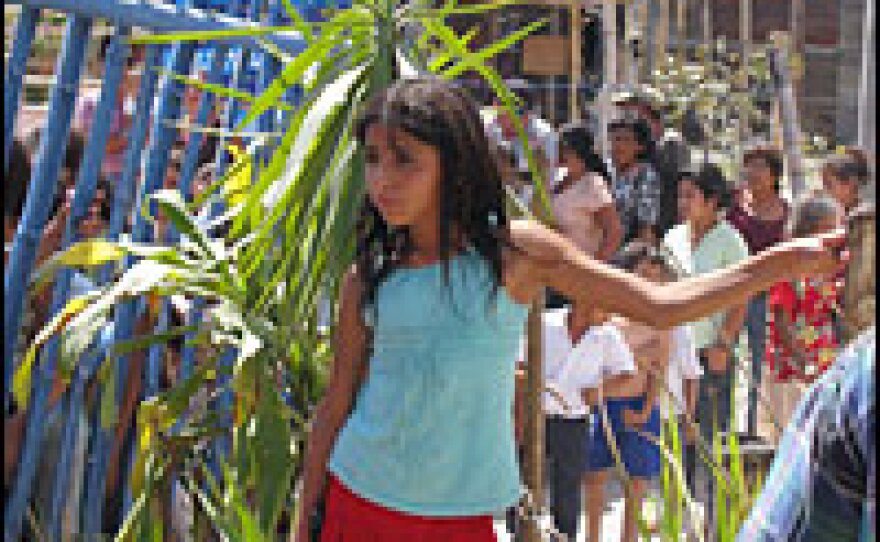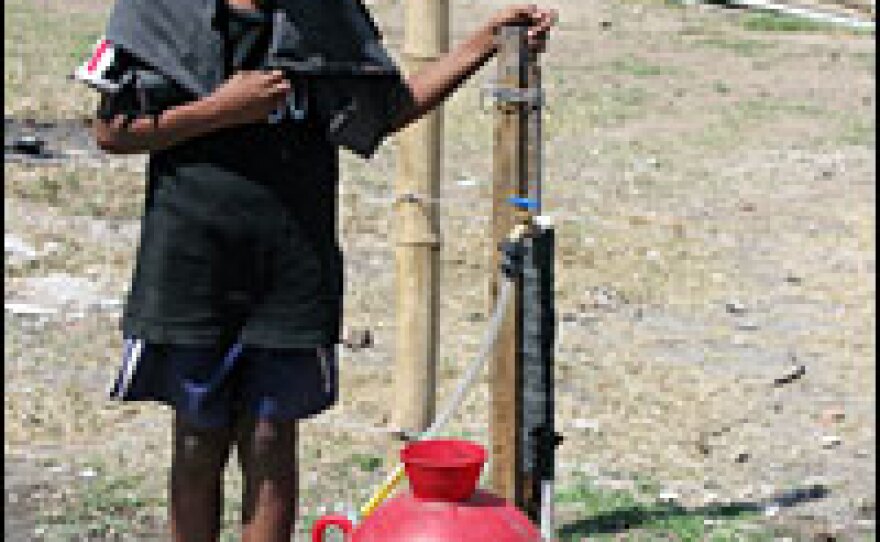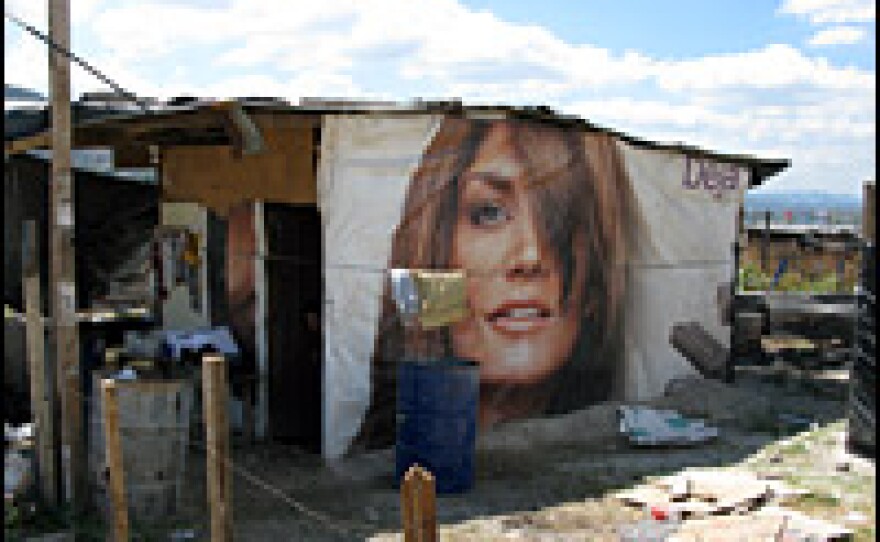


In El Salvador, a historic presidential election campaign is drawing to a close. The FMLN, former Marxist guerrillas, have staged a strong challenge to the right-wing, ruling ARENA party.
If the FMLN, or Farabundo Marti National Liberation Front, wins on March 15, it would be the first time a leftist candidate has ever won the presidency in the Central American country.
But whichever candidate wins, he faces a faltering economy, entrenched poverty, rampant crime and a population that's still recovering from a civil war.
Ordinary Citizens' Economic Woes
One of the most telling facts about how tough life is in El Salvador right now is that a quarter of its population chooses not to live here. An estimated 2 million Salvadorans out of a population of less than 7 million live and work in the United States. Remittances from those migrants rival exports as the leading source of revenue for the country.
In the central market in San Salvador, vendors hawk vegetables, clothes, frying pans.
El Salvador has moved aggressively under the conservative Nationalist Republican Alliance, or ARENA party, to align its economy with the U.S. In 2001, it adopted the U.S. dollar as its sole currency, and in 2006, it ratified a free-trade deal with the United States. The trade agreement led to a modest boost in exports, but in the market, shoppers and shopkeepers say it hasn't helped them.
At a stand selling underwear, Joaquin Orlando Jiron says things are terrible right now.
At most, he sells $10 or $12 worth of briefs a day. He says that after expenses, this isn't enough for a family of four to live on.
Jiron used to sell fruit, but he switched to underwear because when sales are slow, at least underwear doesn't rot.
The 55-year-old says he works seven days a week just to make ends meet. And he is not optimistic about the upcoming presidential election.
"The politics, one candidate or another, it's all the same," Jiron says. "Here in the market you have trained professionals working because it's the only work they can get."
From Battlefield To Ballot Box
The upcoming election pits Mauricio Funes of the FMLN against Rodrigo Avila of the ruling ARENA party.
The FMLN is an outgrowth of the Marxist guerrilla movement that took up arms in 1980. ARENA is the conservative party linked during the 12-year civil war to brutal, right-wing death squads. Now, the two parties are battling at the ballot box.
Whoever wins will take over a country with serious social problems that's trying to swim upstream against a shrinking global economy.
Squatter Camps, 'Salaries Of Hunger'
On the outskirts of San Salvador, a new squatter camp emerged last year. Within a couple of months, 1,200 families flooded into the area. Now, the residents live in an expanse of shacks cobbled together out of scrap wood and black plastic sheeting.
"If there wasn't the need, we wouldn't live here, because the conditions are really bad," says Ana Mercedes Alvarado. "But it was out of necessity that we had to move here."
There are only four water taps for the more than 1,000 shacks. There is no sewage system. The dirt paths turn to streams of mud whenever it rains.
But Alvarado says that by not paying rent, at least she can afford to eat.
"The salaries here aren't dignified salaries, they're salaries of hunger," she says. "In the factories and on the farms, the people earn $45 for half a month's work. How are the poor people in the countryside going to eat on $45 a fortnight? It's a calamity and a sin."
'Country Could Explode'
And this is just one of El Salvador's problems. Crime is rampant. The birthrate is high. Social mobility remains limited, in a place that just fought a civil war over its vast inequities in wealth.
Leonel Gomez, a criminal investigator and political analyst in San Salvador, says the social discontent stewing in the country could explode.
"That's what I'm afraid of. It might happen. I'm not saying that I'm for that — I'm not. But I'm not calling the shots here," he says. "Hunger is calling the shots. Dead kids are calling the shots. Overpopulation [is] calling the shots. Stupid political leaders are calling the shots."
Gomez says the biggest challenge to the next government will be to root out corruption so that there's more investment, economic growth and legitimate opportunities for people to make a living.
Copyright 2022 NPR. To see more, visit https://www.npr.org. 9(MDAzMjM2NDYzMDEyMzc1Njk5NjAxNzY3OQ001))







